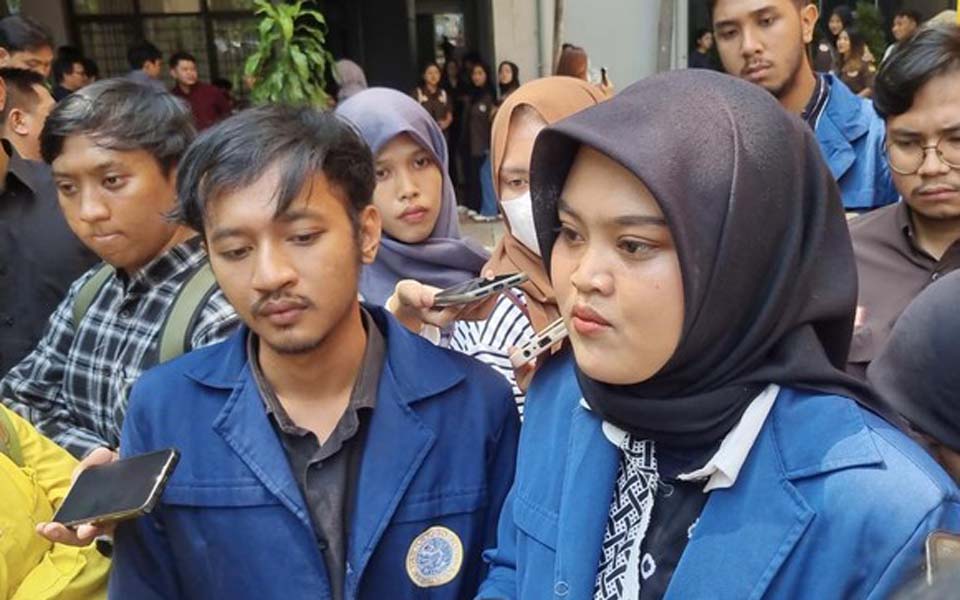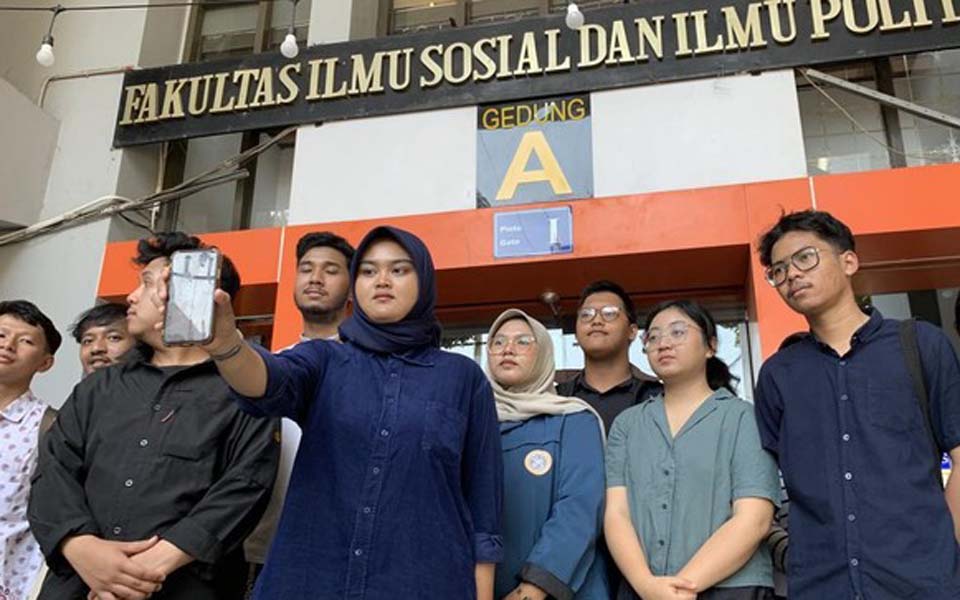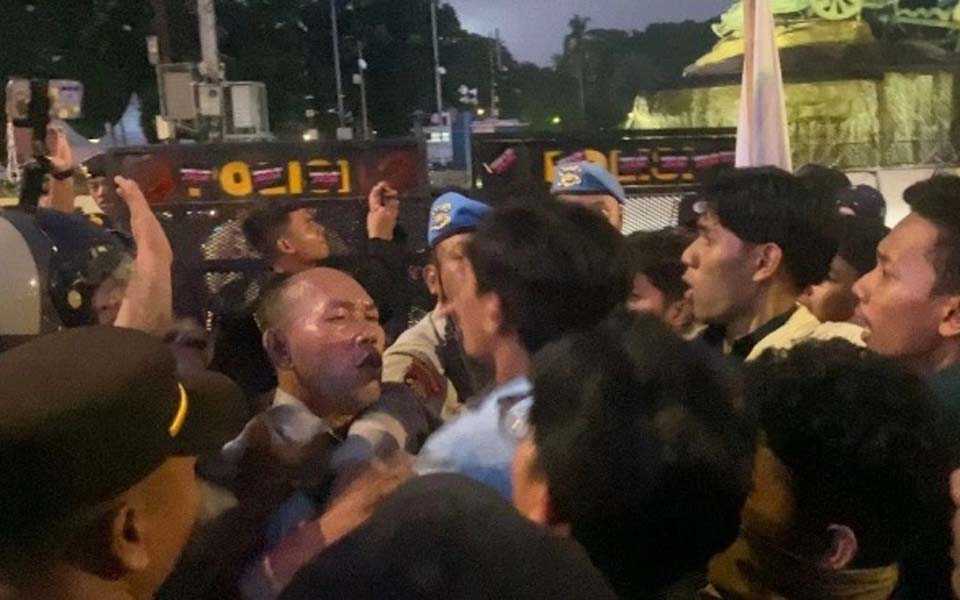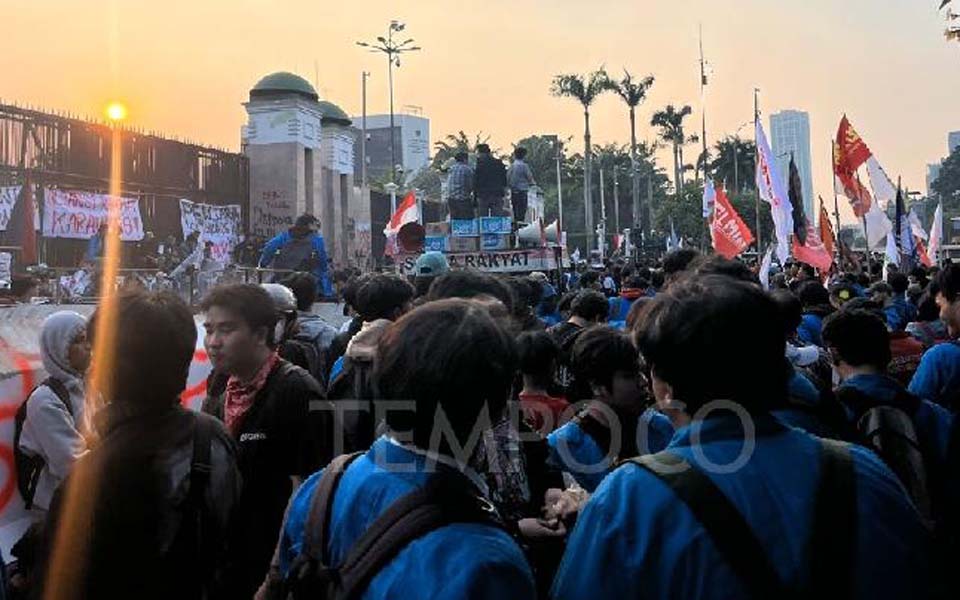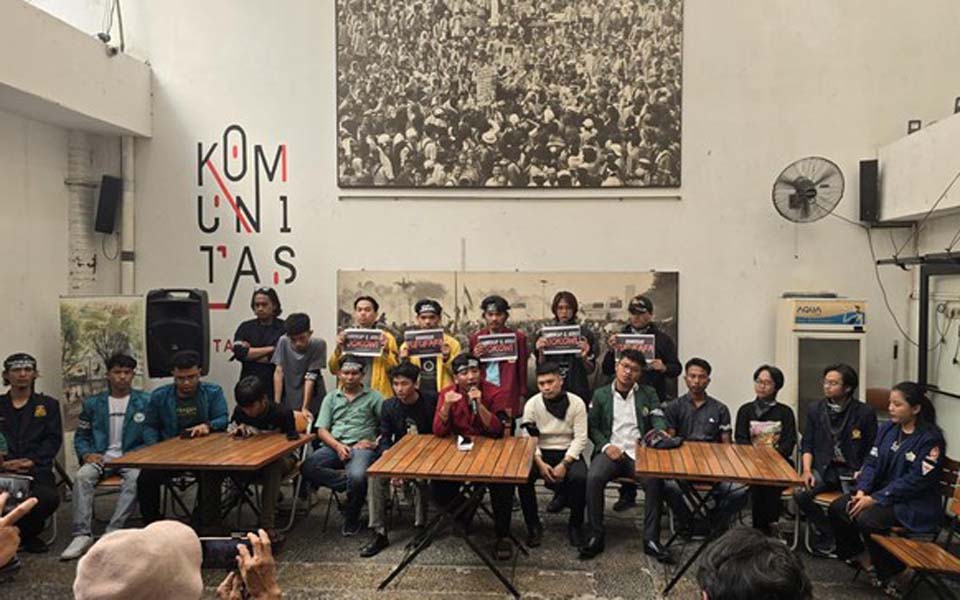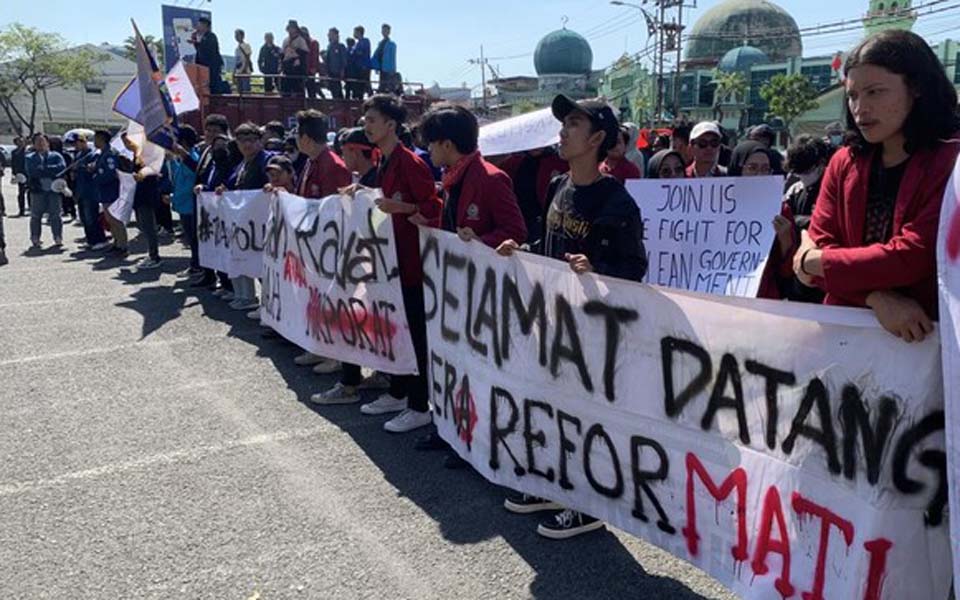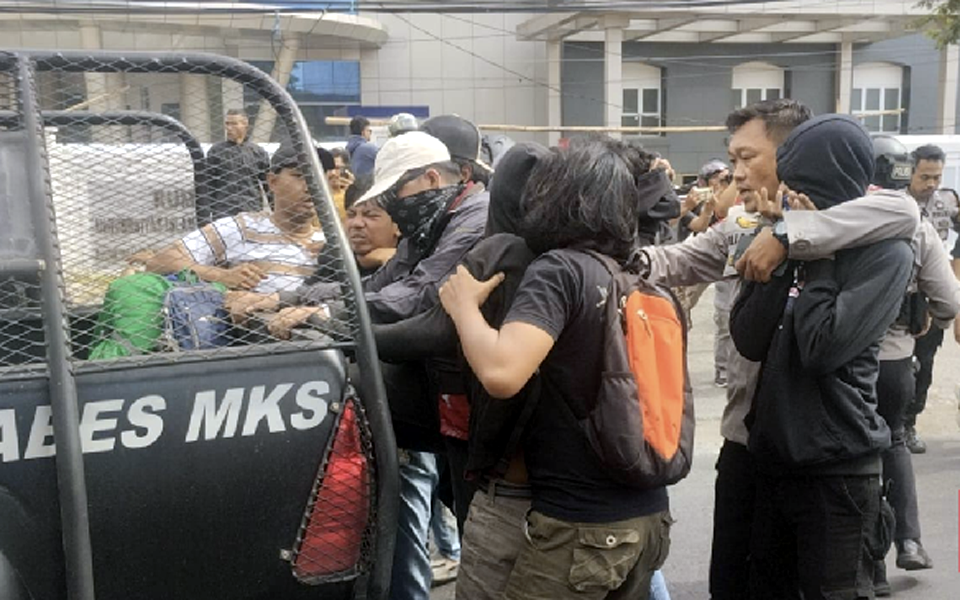Moh Jumri, Jakarta – The Indonesia Student Union (SMI) held an action at the Ministry of Tertiary Education and Technology Research (Kemenristek-Dikti) in Jakarta on Monday October 23.
During the action to commemorate the anniversary of the Youth Pledge, the group called on Indonesia’s youth to unite and come together to fight the education policies of President Joko “Jokowi” Widodo and Vice President Jusuf Kalla (Jokowi-JK) which they said is creating poverty.
The SMI said that the government’s education policy has not built economic sustainability but has instead resulted in Indonesia becoming increasingly dependent on corporations and foreign debt institutions.
The fact is that during the Jokowi-JK era Indonesia’s foreign debt has risen to a fantastic record of 3,825.79 trillion rupiah. Debt repayments for 2018-2019 meanwhile will be as high as 810 trillion rupiah, equivalent to almost half the national budget.
It is not surprising therefore that Finance Minister Sri Mulyani is floundering around and trying to make big savings by cutting subsidies and increasing taxes in order to plug the budget revenue crisis.
The ambitious infrastructure development program that the middle-class touts as an achievement of the Jokowi-JK government will in fact create prolonged poverty for the ordinary people because the program is being supported by debt, not fundamental economic growth in the real economy.
The education sector is one that has suffered significantly from the government’s policy liberalisation program. Structural poverty has already resulted in 4.1 million school age children being unable to attend school. Add to this around 997,445 students who are unable to go on to study at high school. This does not yet include hundreds of thousands of young people who are unable to undergo tertiary education and the high drop out levels.
SMI chairperson Nuy Lestari said, “The role and function of education institutions as a tool of state ideology has changed to one of implanting a pragmatic and anti-critical culture. No different than the country’s democratic crisis, the world of education is also an institutional violator of democratic values. Violations of democracy are increasingly widespread such as mass drop outs and arbitrary suspensions, the muzzling of student organisations, cases of physical violence and the criminalisation of students, youth and pupils as happened at the Yogya 45 Proclamation University, the Pekalongan University and other [universities] around the country”.
Furthermore, a meeting of rectors throughout Indonesia in late September agreed to draft a regulation that will minimalise the growth of radical ideas on higher education institutions. Nuy Lestari regrets that efforts to contain radicalism in the world of education are actually being implemented haphazardly by enacting regulations that make no sense such as nighttime campus curfews, prohibiting academic forums and signing Memorandums of Understanding (MoU) with the military to take legal action against students that hold protest actions against campus policies”, Nuy concluded.
According to Nuy, “This is an acute phase in the democratic crisis. Our education institutions are currently trying to depoliticise campuses and muzzle the youth social movement”, said Nuy.
This situation is opening our eyes to the fact that state violence against the people is not just in the form of prohibitions and restraints on the freedom to organise and physical violence, but also violence in the form of shackling freedom of thought and expression.
Because of this therefore, the SMI nationally is holding protest actions in front of the Kemenristek-Dikti building, the Private Sector Higher Education Coordination (Kopertis) office, the Education Office and other institutions that are responsible for resolving economic, political and educational problems in Indonesia.
In commemorating Youth Pledge Day 2017, action coordinator Shem Firdaus explained that, “Youth, as majority generation and pillar of productive labour, will of course experience serious social and economic blows. Contract labour and outsourcing systems, guarantees of a decent job are being irreparably damaged by liberalisation of the labour market and have become the principle factor in the exploitation of young people’s productive labour, whose work is being increasingly undervalued as a result of the politics of low wages. The burden on youth and the families of workers and farmers in Indonesia, which is becoming increasingly heavy, is being accompanied with the removal of subsidies and the commercialisation of public sector education, healthcare and transportation”, he concluded.
This social and economic crisis must become the work of the people’s and youth movements who should become involved in the people’s struggle if we do not want to see the ranks of slavery and colonialism become increasingly chronic in this country.
Notes
On October 28, 1928, Indonesian students and youth gathered in Jakarta to declare the Youth Pledge – generally accepted as the first open declaration of Indonesian independence – which called for a united independent Indonesia under the theme of “One Nation, One People, One Language”.
[Translated by James Balowski. The original title of the article was SMI Menilai Kebijakan Pendidikan di Rezim Jokowi-JK Mengalami Kemunduran.]






